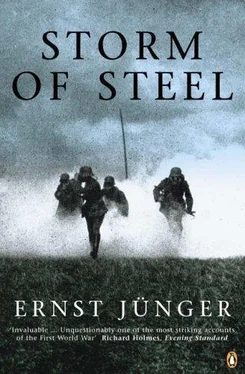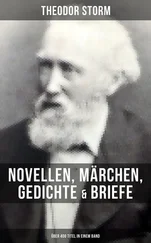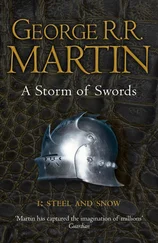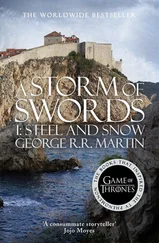The shelling was so intense there, that on days of no wind the explosive vapours were strong enough to poison part of the 6th Company. We had to go down into the shelters, like divers with oxygen masks, to drag the unconscious men back to the surface. Their faces were cherry-red, and their breath came in nightmarish gasps.
One afternoon, stepping out of my sector, I came upon several half-buried boxes of British munitions. To study the construction of a rifle-grenade, I unscrewed one, and took out the detonator. Something was left behind, which I took to be the percussion cap. However, when I tried to unpick it with my nail, it turned out to be a second detonator, which exploded with a loud bang, took off the tip of my left index finger, and gave me several bleeding wounds in the face.
That same evening, as I was standing talking to Lieutenant Sprenger on top of my dugout, a heavy shell hit near us. We disagreed about the distance, Sprenger reckoning it was about ten paces off, I nearer thirty. To see how trustworthy my estimates might be in this respect, I stepped it out, and found the crater -of a size to accord with an unpleasant manufacture – to be twenty-five yards away.
The 20th of July found us back in Puisieux. I spent all afternoon standing on a piece of crumbling wall, and watched the condition of the line, which looked rather ominous to me. Occasional details I wrote down in my notebook.
Copse 125 was regularly sheeted in thick smoke rising from the massive explosions, under red and green flares that rose and fell. If the artillery was silent for any time, you could hear the tactactac of machine-guns, and the dull crack of hand-grenades going off in the distance. From where I stood, the whole thing looked almost like a game. It lacked the brutish scale of a big battle, but one could feel the tenacious wrestling for all that.
The copse was like a festering wound that both sides nagged and worried at. Both sets of artillery toyed with it, like a couple of beasts of prey, wrangling over a victim; they shredded its trees and flicked them into the air. It never had very large numbers of men in it, but it could be defended, and, as it was so conspicuous in that wasteland all around, it was always available as an instance of the way that even the most gigantic confrontation of forces is nothing but a mechanism by which today, as in every era throughout history, a man’s weight is taken.
Towards evening, I was summoned to the commander of the troops in reserve, where I was told that the enemy had managed to penetrate the trench network on our left flank. In order to clear a little space in front of us again, the instructions were that Lieutenant Petersen with the storm company was to clear the hedge trench, while I with my men cleared the communication trench that ran in a hollow parallel to it.
We set out at daybreak, but immediately came under such strong infantry fire that we postponed our mission. I ordered Elbinger Alley to be occupied, and caught up on some sleep in a huge cavern of a dugout. At eleven in the morning I was woken up by cracks of hand-grenades coming from our left, where we had put up a barricade. I hurried over, and found the usual scene of close-quarters fighting. White hand-grenade clouds whirling over the barricade, machine-guns on either side set back a few traverses clattering away at each other. And in between men, leaping forward and darting back. The minor essay by the British had already been repulsed, but it had cost us a man lying behind the barricade, shredded by hand-grenade splinters.
In the evening I received orders to lead the company back to Puisieux, and when I arrived there I found I had instructions to go on a small-scale initiative with two sections of men the next morning. The purpose was to roll up the so-called Valley Trench from red point K to red point Z, and this was to happen at three-forty in the morning, following a five-minute artillery and mortar barrage. Unfortunately, this enterprise, for which Lieutenant Voigt would lead a storm troop, and I a couple of platoons, had clearly been dreamed up from the map, because the Valley Trench, as its name suggested, followed the lowest line, and could be seen into from many vantage- points from top to bottom. I wasn’t at all happy with the whole thing, or at least I wrote in my diary, after the order: ‘Well, with luck I’ll be able to describe it tomorrow. On account of pressure of time, I must reserve my opinion of the order – I’m sitting in the bunker in F Sector, it’s midnight, and I’m being woken at 3.’
Still, orders are orders, and so three-forty found Voigt and me with our men all ready in the breaking light at the jumping-off point by Elbinger Alley. We were in a knee-deep trench from which we could look down into the valley, which began to fill at the agreed hour with smoke and flames. A large splinter that flew up from this seething mass to our position hurt Fusilier Klaves in the hand. I had the same spectacle before me that I
had had so often already before attacks: the image of a group of men waiting in poor light, inclining their heads each time the guns fall short, or else prostrating themselves on the ground, all the while excitement steadily mounts – a scene that grips the spirit like some terrible silent ceremonial that portends human sacrifice.
We jumped off precisely on time, and were favoured by the dense pall of smoke that the bombardment had cast over the Valley Trench. Shortly before Z, we encountered resistance, and forced our way through with hand-grenades. As we had reached our objective, and were not keen to continue fighting, we erected a barricade and left behind a platoon with a machine-gun.
The only satisfaction I took from the whole event was from the way the storm troops comported themselves – they strongly reminded me of old Simplicissimus. They were a new breed of fighter so far as I was concerned, the volunteers of 1918: still raw, but instinctively brave. Those young dashers with long hair and puttees would start quarrelling among themselves twenty yards in front of the enemy because one had called the other a scaredy-cat, and yet they all swore like troopers and threw their weight around no end. ‘Christ, we’re not all such funks as you are!’ yelled one, and rolled up another fifty yards of trench single-handed.
The platoon I’d left at the barricade came back in the afternoon. They had taken casualties, and not been able to hang on any longer. I must confess, I’d already given them up for lost, and was amazed that anyone could make it back alive down the long line of the Valley Trench in daylight.
In spite of that, and various other counter-punches, the enemy was well entrenched in the left flank of our front line, and in the barricaded communications trenches, and threatening our line of resistance. This kind of semi-detached arrangement, with no no man’s land dividing us, felt distinctly uncomfortable in the long run; we had a clear sense of not being safe even in our own lines.
On 24 July, I went off to reconnoitre the new C section of the line of resistance, which I was to take over on the following day. I had the company commander, Lieutenant Gipkens, show me the barricade along the Hedge Trench, which was unusual inasmuch as on the British side it comprised a disabled tank, which had been integrated into the fortifications like a strongpoint. To take in the details, we sat down on a little seat cut into the traverse. As we were talking away, I was suddenly grabbed and pulled down. The next second, a bullet struck the sand where I had been sitting. By a lucky chance, Gipkens had noticed a rifle barrel slowly being poked through a loophole in the block only forty paces away. His sharp painter’s eyes had saved my life, because at that range I was a sitting duck. We had happened to sit down in the short stretch between the lines, and were as visible to the British sentry as if we’d been facing him across a table.
Читать дальше












